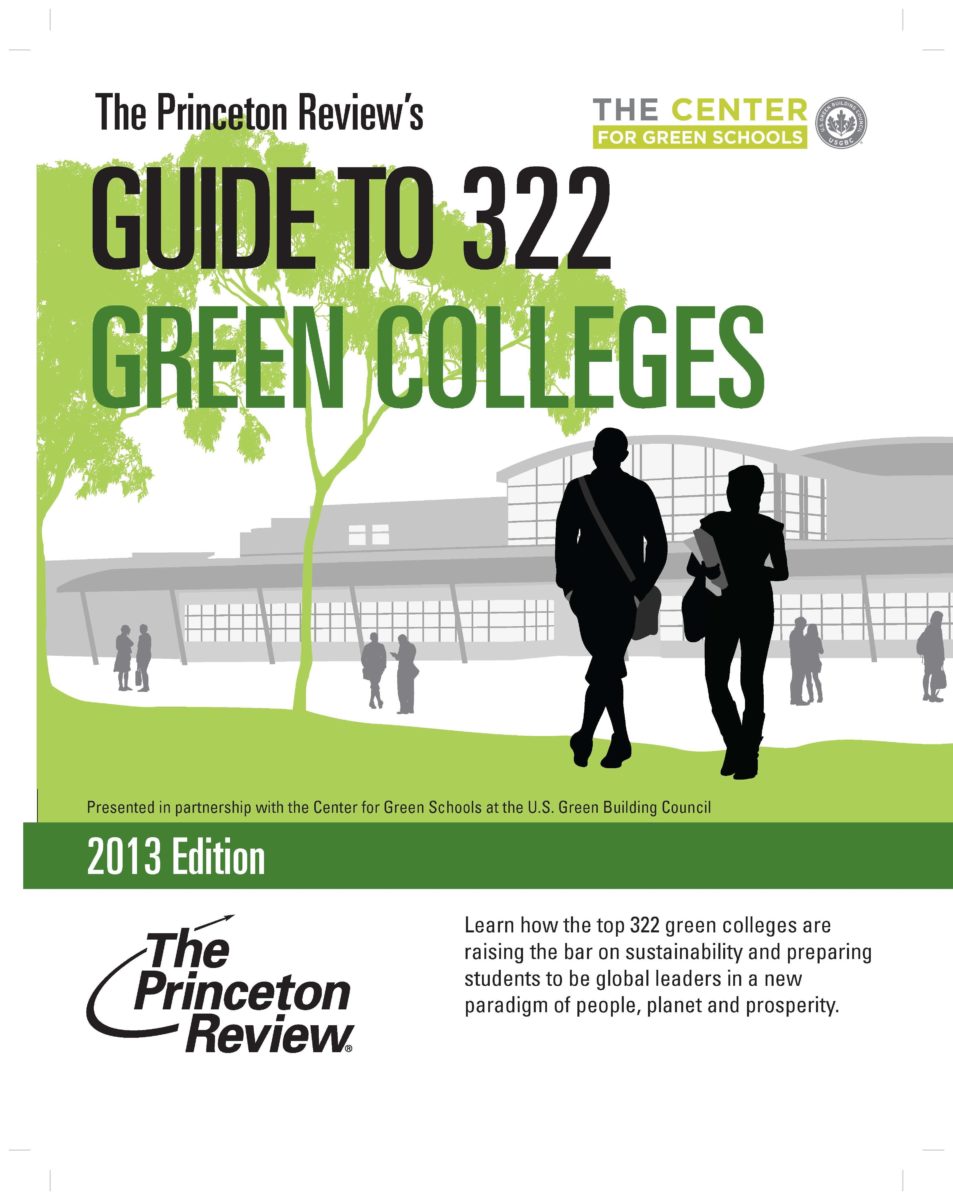
Allegheny College Featured in “The Princeton Review’s Guide to 322 Green Colleges: 2013 Edition”
 April 22, 2013 — Allegheny College is one of the most environmentally responsible colleges in the U.S. and Canada, according to the Princeton Review. The education services company — known for its test prep programs and college rankings, ratings and guidebooks — profiles Allegheny in the fourth annual edition of its free downloadable book “The Princeton Review’s Guide to 322 Green Colleges.”
April 22, 2013 — Allegheny College is one of the most environmentally responsible colleges in the U.S. and Canada, according to the Princeton Review. The education services company — known for its test prep programs and college rankings, ratings and guidebooks — profiles Allegheny in the fourth annual edition of its free downloadable book “The Princeton Review’s Guide to 322 Green Colleges.”
The Princeton Review chose the schools for this guide based on a 50-question survey it conducted in 2012 of administrators at hundreds of four-year colleges. The company analyzed data from the survey about the schools’ course offerings, campus infrastructure, activities and career preparation to measure their commitment to the environment and to sustainability.
The 215-page guide is the only free comprehensive resource of its kind: it can be downloaded at www.princetonreview.com/green-guide.
The 322 school profiles in the guide feature essential information for applicants – facts and statistics on school demographics, admission, financial aid – plus write-ups on the schools’ specific sustainability initiatives. A “Green Facts” sidebar reports on a wide range of topics from the school’s use of renewable energy sources, recycling and conservation programs to the availability of environmental studies and career guidance for green jobs.
In the guide’s profile on Allegheny, the Princeton Review highlights the leadership the college has shown:
“As a signatory of ACUPCC [Association of College and University Presidents’ Climate Commitment] and a participant in the White House’s Better Buildings Challenge to increase building efficiencies by at least 20 percent across campus, Allegheny College is determined not just to participate in the green movement, but to lead. One hundred percent of the campus electricity is generated through wind sources and two on-campus solar arrays.”
The Princeton Review also noted Allegheny’s efforts to help students continue their commitment to sustainability:
“Each year the college invites recruiters from green companies and organizations and alums working in sustainability to hold informational presentations for recruiting purposes.”
Robert Franek, senior vice president/publisher of the Princeton Review, noted his company’s recent survey findings indicating significant interest among college applicants in attending “green” colleges. “Among 9,955 college applicants who participated in our 2013 ‘College Hopes & Worries Survey,’ 62 percent said having information about a school’s commitment to the environment would influence their decision to apply to or attend the school,” he said.
How Schools Were Chosen for the Book
The Princeton Review chose the schools based on a survey it conducted of hundreds of colleges across the U.S. and in Canada in 2012 to tally its “Green Ratings” (scores from 60 to 99) it reports in school profiles in its annual college guidebooks and website. The survey asked administrators more than 50 questions about their institution’s sustainability-related policies, practices and programs. The company reported Green Ratings for 806 institutions in summer 2012. The 322 schools in this guide received scores of 83 or above in that assessment.